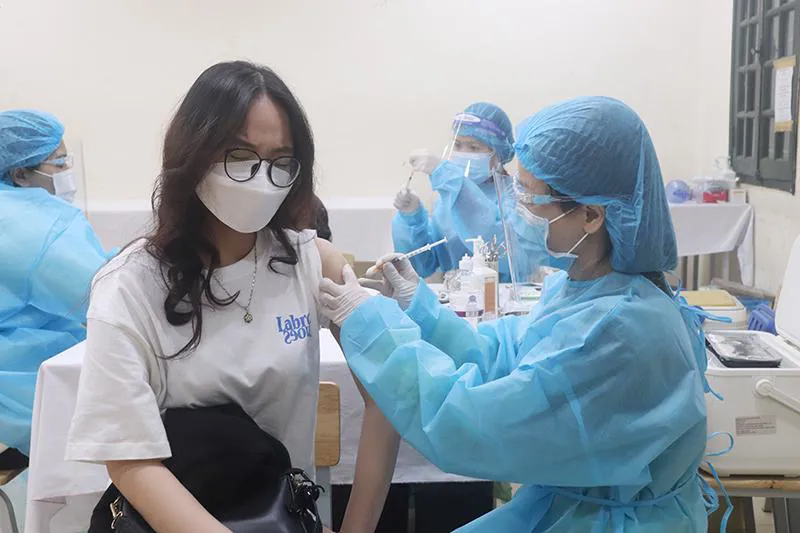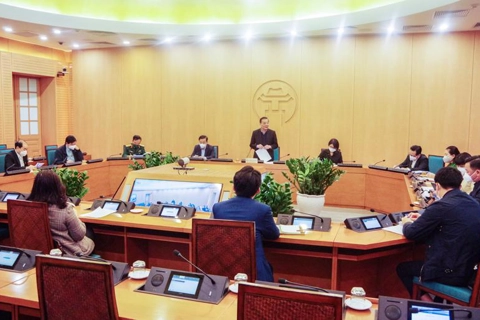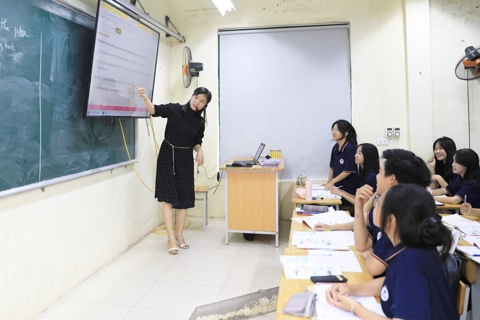BA.5 Omicron sub-variant detected in Vietnam
Vietnam will keep a close eye on the emergence of new strains.
Vietnam has detected imported BA.5 Omicron sub-variant after conducting gene sequencing of newly confirmed patients' samples, according to Dr. Phan Trong Lan, director of the General Department of Preventive Medicine under the Ministry of Health (MoH).
Lan underscored that initial research showed the Omicron sub-lineages BA.4 and BA.5 spread faster than the old sub-variants (BA.1 and BA.2). There has been no specific evidence of the new sub-variants’ virulence, but some studies indicated that there is an aggravation in the African region.
However, the director confirmed that Omicron sub-variant BA.2 still remains the dominant one in the country.
“The emergence of new strains is inevitable as a result of border reopening and the new normal situation, in which precautionary protocols are relaxed,” Lan said.
He added that the BA.5 sub-variant was first detected in South Africa in January. Since then, it has become a common strain in several countries including Israel, Germany, and others.
“Some studies show that the BA.4 and BA.5 sub-variants spread faster than the BA.2, the previous one, but there is no evidence yet of its severity,” Lan stressed.
Dr. Phan Trong Lan, director of the General Department of Preventive Medicine under the Ministry of Health. Photo: Nhu Loan |
“Coronavirus vaccines remain the reliable shield to protect the community and provide substantial protection against severe disease, and vaccine makers are working on updates that might elicit a stronger immune response against the variants,” Lan said.
WHO has announced several sub-lineages of the Omicron variants namely BA.1, BA.2, BA.3, BA.4, BA.5 and XE. However, only sub-variants BA.1, BA.2, and BA.5 have been found in Vietnam. The organization has warned that as the new variants of SARS-CoV-2 are making the pandemic complicated again, countries need to maintain measures such as vaccination and monitoring.
The new strain emerged as Vietnam confirmed 142,000 new Covid-19 infections in the past two months, but the fatality rate dropped sharply and the outbreak is still under control.
Although the number of Covid-19 cases and deaths has been decreasing globally, experts believe the situation remains complicated in some areas, and many countries are concerned about a new wave emerging this summer.
The WHO has said that the world is still in the pandemic stage and the Omicron variant may continue to mutate, so countries must maintain vaccination and surveillance.
Lan said Vietnam concurs with the WHO that vaccines remain an important tool in stopping the pandemic and people should get vaccinated with the proper dose.
Vietnam’s health ministry had said recently that it was still not the right time for Vietnam to consider Covid-19 an endemic disease though the pandemic has been contained to some extent. The novel coronavirus is constantly changing and it is difficult to determine the extent of danger and degree of aggravation and death.
Statistics showed that 81.5% of Vietnam’s 98 million population have been fully vaccinated, a rate much higher than the world average. The number of new Covid-19 cases and deaths has decreased.
A Hanoi student is vaccinated against Covid-19. Photo: Ha Linh |
“Besides, allocation of adequate funds allows would improve the country's preparedness for the possibility of new and more dangerous variants,” Khoa said.
He stressed that Vietnam can consider announcing the end of Covid-19 “when the World Health Organization declares the end of the global pandemic.”
In many countries, the Covid-19 situation was still complicated and it is necessary to be prepared for adverse eventualities, Khoa maintained.
“Moreover, many people have suffered declining health status after contracting Covid-19 and adequate research has not been done on the issue until now,” the deputy director asserted.
In early June, the Ministry of Health made adjustments to the required protocols that it issued back in 2020 to contain the spread of Covid-19.
This has been whittled down to three measures: get enough Covid-19 jabs (at least two); wear a mask in public places, and disinfect one's hands often. One positive outcome of the pandemic is that people have developed the habit of disinfecting hands and surfaces.
On June 20, the Hanoi Center for Disease Control (CDC) said that the ciy’s health sector has conducted gene sequencing of 260 samples which are positive for SARS-CoV-2 in the community and has not yet recorded any cases infected with sub-variants BA.4 and BA.5. From February until now, the Omicron variant remains the major variant across 30 districts and towns of Hanoi city. Specifically, 256/260 samples (accounting for 98.5%) were detected with Omicron variant; the remaining 4/260 samples (accounting for 1.5%) were infected with Delta variant. |












